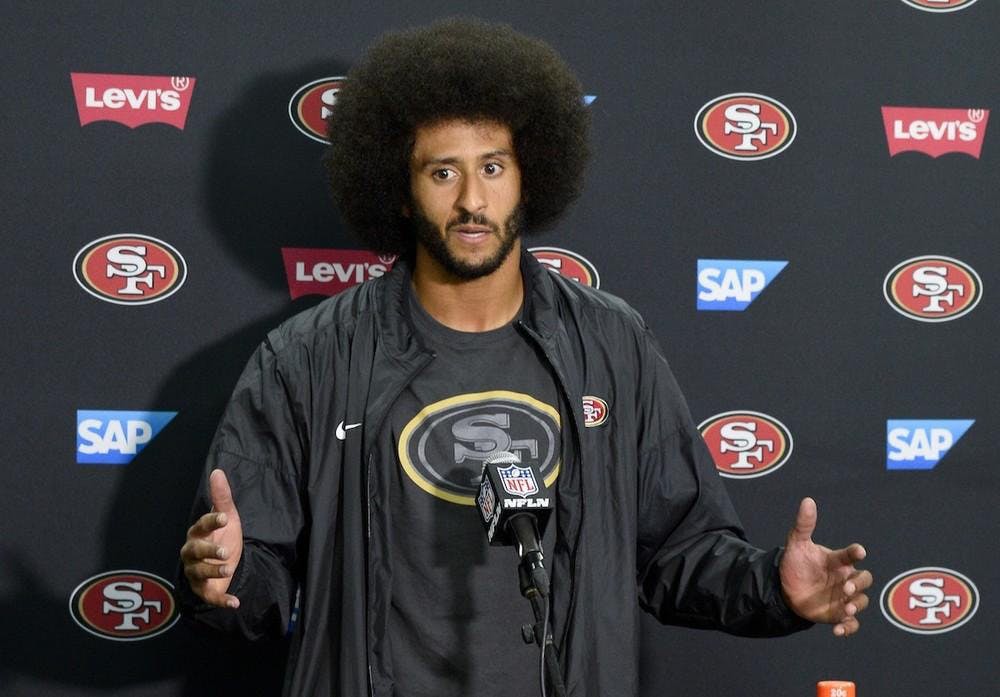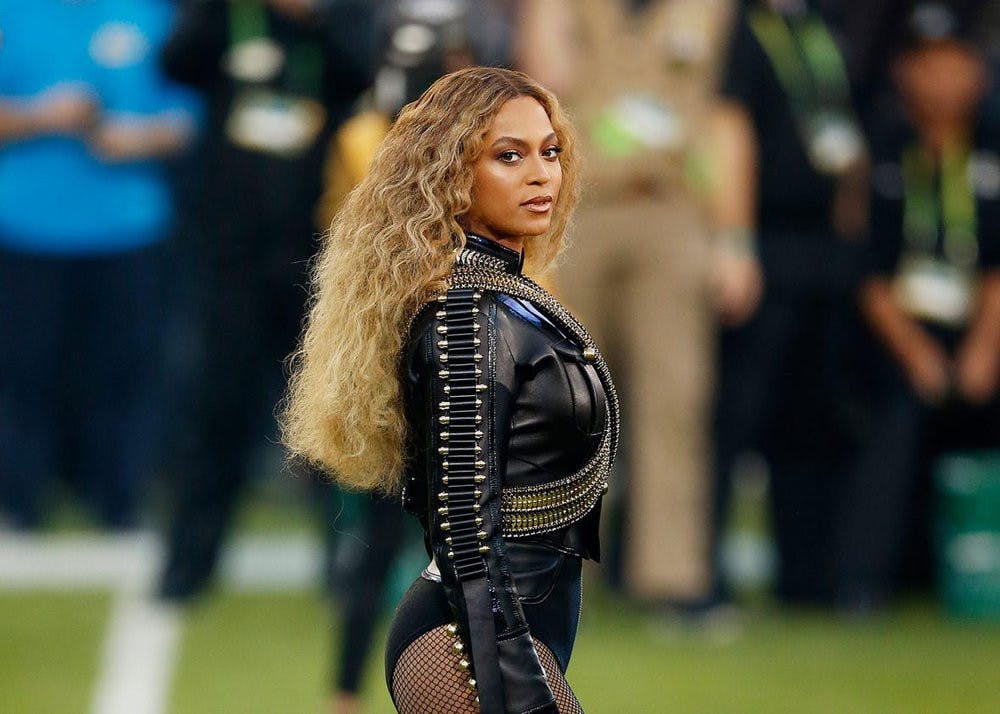BY: JENNA CALDWELL

During a preseason game against the Green Bay Packers, San Francisco's 49ers quarterback Colin Kaepernick refused to stand during the singing of "The Star Spangled Banner." Since then, Kaepernick's actions have been viewed by many as a disrespectful, blatant protest of American values.
When asked why he did not stand up for the National Anthem, Kaepernick told NFL, "I am not going to stand up to show pride in a flag for a country that oppresses black people and people of color. … There are bodies in the street and people getting paid leave and getting away with murder." He also said that he will continue to sit until "there's significant change, and I feel like that flag represents what it's supposed to represent and this country is representing people the way that it's supposed to, I'll stand."
Similar situations occurred with Beyonce's pro-black Super Bowl halftime performance earlier this year and when gymnast Gabby Douglas didn't salute the flag at the Rio Olympics. It's the same old recurring trend -- black celebrities receiving backlash for being "un-American," when they are simply just trying to bring attention to racist roots in American History.

(Slate)
Since Kaepernick's controversy first rattled the sports world, angry "fans" have been posting videos of themselves burning his 49ers jersey. Even though many were quick to react and label the quarterback as unpatriotic, few know that the national anthem contains language that celebrates the murder of African-Americans.
Typically, we only sing the first verse of the national anthem, but its the third verse reads:
"No refuge could save the hireling and slave
From the terror of flight or the gloom of the grave,
And the star-spangled banner in triumph doth wave
O'er the land of the free and the home of the brave."
"The Star Spangled Banner" was written by Francis Scott Key, a slaveowner and anti-abolitionist, who once called Africans "a distinct and inferior race of people." This since omitted verse only demonstrates that while we may all sing the song, it's foundation is rooted in racist opinions and theories that we should not support today without question.
More than anything, what Kaepernick is doing should not come as a shock to people. An African-American refusing to stand for the National Anthem, a blatant celebration on the murder of African-Americans?? C'mon now. This is much more than just what it seems on the surface. While people still continue to call him disrespectful and unpatriotic, it's understandable that he is just trying to highlight the greater divide that this nation continues to go through. It is not illegal or unconstitutional to not salute or stand while the national anthem plays, and this silent protest is a perfect way to keep our society talking about these prevalent issues.
Cover: (Denis Poroy/ AP Photo via Vice)


